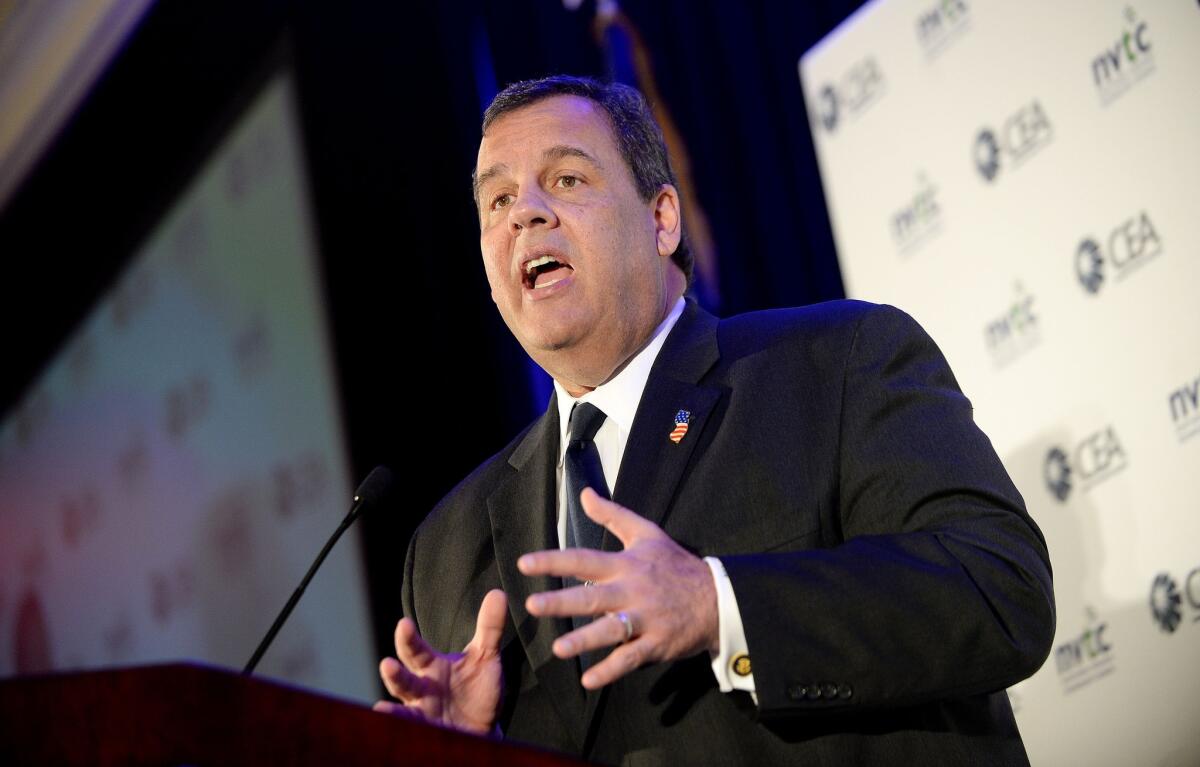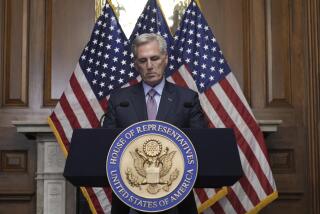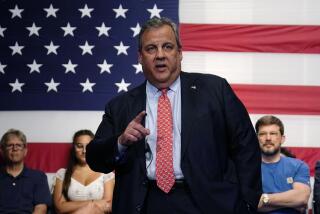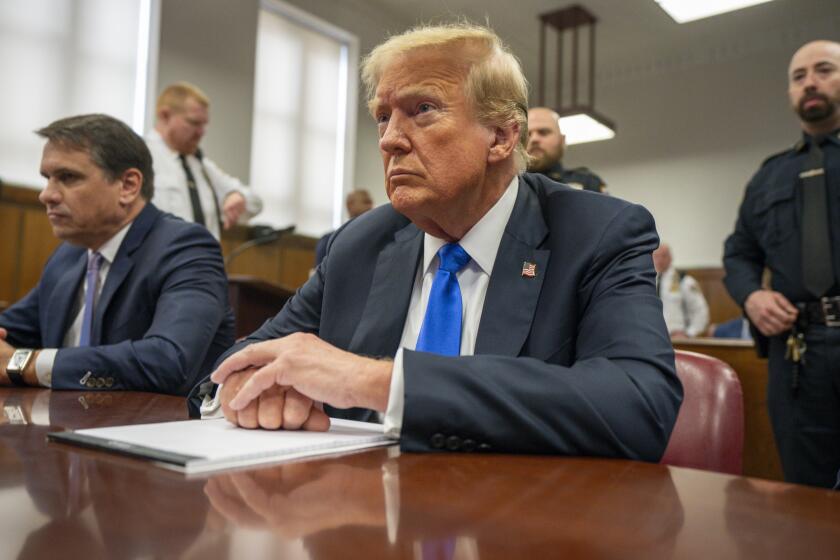Op-Ed: Chris Christie’s political ‘machine’; it’s not such a bad thing

Here’s a question whose answer may seem obvious, but isn’t. Which is worse, a system in which political hacks can cause a massive traffic jam as a form of political payback, or a system in which it’s a federal crime for political hacks to exact such retribution?
In September 2013, New Jersey government officials who reported to Gov. Chris Christie ordered lane closures that tied up traffic for miles near Fort Lee, N.J., whose mayor (a Democrat) had refused to support Christie (a Republican) for reelection. “Time for some traffic problems in Fort Lee,” Bridget Anne Kelly, a deputy chief of staff to the governor, wrote in an email. “Got it,” replied David Wildstein, an appointee.
The operatives cooked up a cover story about a traffic study, but the scheme blew up in their faces, triggered several investigations and resulted in Kelly’s firing. Several others resigned, and Christie’s presidential prospects were shot.
Then, on Friday, the scandal turned another corner: The U.S. Justice Department announced a guilty plea by Wildstein and the indictments of Kelly and Bill Baroni, the former deputy executive director of the Port Authority of New York and New Jersey (both have pleaded not guilty). Though the charges stretch what the New York Times called “a rarely used provision of a fraud statute,” Kelly and Baroni could face years in jail.
Lost in the rush to exact retribution against the retributors is a home truth about government: It works best when politicians can help supporters and punish defectors.
Christie has been accused of running a “machine,” which is true enough. The phrase “machine politics” summons up images of Tammany Hall and other urban party organizations of old, but I use the term in a broader sense. Machines are hierarchies that hold politicians accountable to each other.
In a governing system as fragmented as ours, they’re essential for what the great political scientist James Q. Wilson called “assembling power in the formal government.” Parties and political leaders cajole their people into line not by issuing commands (in our system, political leaders don’t have a lot of direct power over other politicians) but by using intricate reward systems. They use everything from plum committee assignments to fundraising help and favored positions on the ballot.
Machines are the kitchens where compromises are cooked up and where agreements, once made, are kept. Important legislation such as immigration reform or a budget deal needs support from a wide array of politicians, which leaders can’t achieve without making complicated trades. The process may not always be pretty, but the alternative isn’t cleaner government — it’s chaos.
America today has a crisis not of political leadership but of followership, partly because well-intentioned reformers have redefined as corrupt so many of the political carrots and sticks that our grandparents took for granted. Efforts to reduce politicians’ ability to abuse ballot access, campaign money, pork-barrel spending and other valuable commodities have also stripped them of the tools they need to line up political support.
As a result, there is very little that, say, House Speaker John A. Boehner can do to exert discipline over his Republican caucus. No wonder Capitol Hill is such a mess.
The New Jersey lane closures were laughably boneheaded, a Keystone Kops version of machine politics. Successful machines rely much more on rewards than on punishments; and punishments, when used, are supposed be meted out to political antagonists, not random commuters. The New Jersey knuckleheads deserved to be fired and discredited.
But prosecuted? What they were trying, albeit incompetently, to do — reward friends and punish foes — is the very stuff of politics. Criminalizing this behavior blurs still further the already dim boundary between politics and crime, and risks making it harder than ever for politicians to organize their world.
The line between politics and corruption is often unclear, and voters are better able to draw it than prosecutors. The political and social penalties already levied on Kelly and Baroni were more than severe enough to deter clumsy (and ineffective) vindictiveness. Prison sentences risk putting politics behind bars.
Jonathan Rauch, a senior fellow at the Brookings Institution, is the author of the new ebook “Political Realism: How Hacks, Machines, Big Money, and Back-Room Deals Can Strengthen American Democracy.”
Follow the Opinion section on Twitter @latimesopinion and Facebook
More to Read
A cure for the common opinion
Get thought-provoking perspectives with our weekly newsletter.
You may occasionally receive promotional content from the Los Angeles Times.










